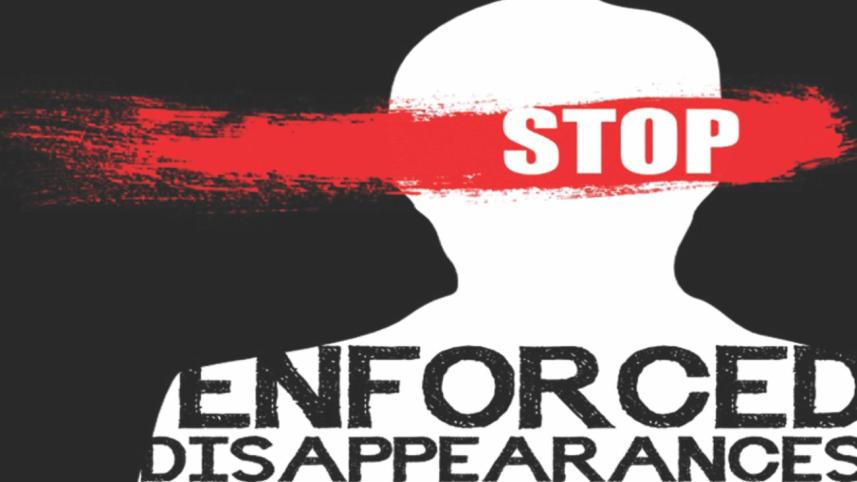Why did they need to make him disappear?

Every night Jahanara Khatun went to sleep in the hope that her husband would come home the next morning.
But the morning came with no news, prolonging instead her agonising wait for Md Liton Mollah, who was whisked away in a motorcycle, handcuffed, allegedly by law enforcers on July 24.
"A month has gone by, but there is no trace of my husband. I even don't know what has happened to him," Jahanara told The Daily Star over the phone on August 20.
"If my husband is involved in any crime, the police can arrest him and send him to jail. Why did they need to make him disappear?" she said with a cracked voice.
Finally, the family could find Liton on Tuesday, when police said he was arrested with a firearm and a case filed with Kushtia Sadar Police Station against him.
After meeting her husband at the police station on Wednesday, Jahanara said the man told her that he was kept at a police outpost in Baghapara of Jashore for about a month. After being detained, he was taken to the police outpost, handcuffed and blindfolded.
Quoting witnesses, she earlier told this newspaper that two men in police uniform stopped a three-wheeler, in which Liton was travelling, at Dak Bangla intersection in Jashore town around 5:00pm on July 24.
Detaining him, they called someone over a mobile phone. Minutes later, two plainclothes men with handcuffs reached the spot in a motorcycle and took him away.
Liton has been a supporter of the Awami League, and that day he was on his way to the house of a local AL leader from his home in Birampur village under Kotwali Police Station, she added.
The woman alleged that five minutes before her husband went out of home, some policemen wandered around their house.
But Golam Mostafa, officer-in-charge of Kushtia Sadar Police Station, told this newspaper on Thursday that Liton was detained around 2:00am on August 25. So far, 18 cases have been found against him in Jashore and Narail.
A locally made pistol and two bullets were found in his possession, he added.
Jahanara said her husband was earlier involved in some criminal activities, but he gave it up all and was leading a normal life. He had suffered injuries to his legs in an attack by rivals and was now sick.
According to her, 42-year-old Liton runs his family with the money earned from tailoring work and fish farming in a family pond. Along with a college going daughter and school going son and Liton's aged mother, she has been having a hard time without her husband, the lone breadwinner of the family.
Local sources said Liton had enmity with some political goons over control of drug peddling in his locality. The opponent group might have had links with his disappearance, they added.
On July 27, Jahanara said, she went to Kotwali Police Station to lodge a general diary (GD), but she was asked to contact Sub-Inspector Sekandar Abu Zafar, who was then in-charge of Upashahar Police Outpost.
The woman contacted the official accordingly.
Instead of registering the GD, police asked her to continue search for her husband. Finally, a GD was registered on August 17. She, however, was not allowed to write about the involvement of men in police uniform in the GD.
Talking to this newspaper on August 20, Officer-in-Charge of Jashore Kotwali Police Station Md Moniruzzaman said they were trying to find Liton. Asked about Liton being picked up by two men in uniform, he said he was not aware of any such incident.
SI Sekandar Abu Zafar said registering the GD was delayed as his senior officers instructed him to inquire about the matter first. He also said as he went on leave during Eid, it took some time to register the GD.
Liton's incident is one instance of enforced disappearance.
According to national and international rights groups, around 606 incidents of enforced disappearance have been documented in Bangladesh over the past decade.
Many of the victims returned to their families while bodies of some were found later. Others were shown arrested in several cases filed by the law enforcers.
Those who returned never opened up to say clearly who picked them up.
Political activists, non-partisan critical voices, intellectual figures, academics, and journalists were also among those subjected to enforced disappearance.




 For all latest news, follow The Daily Star's Google News channel.
For all latest news, follow The Daily Star's Google News channel.
Comments